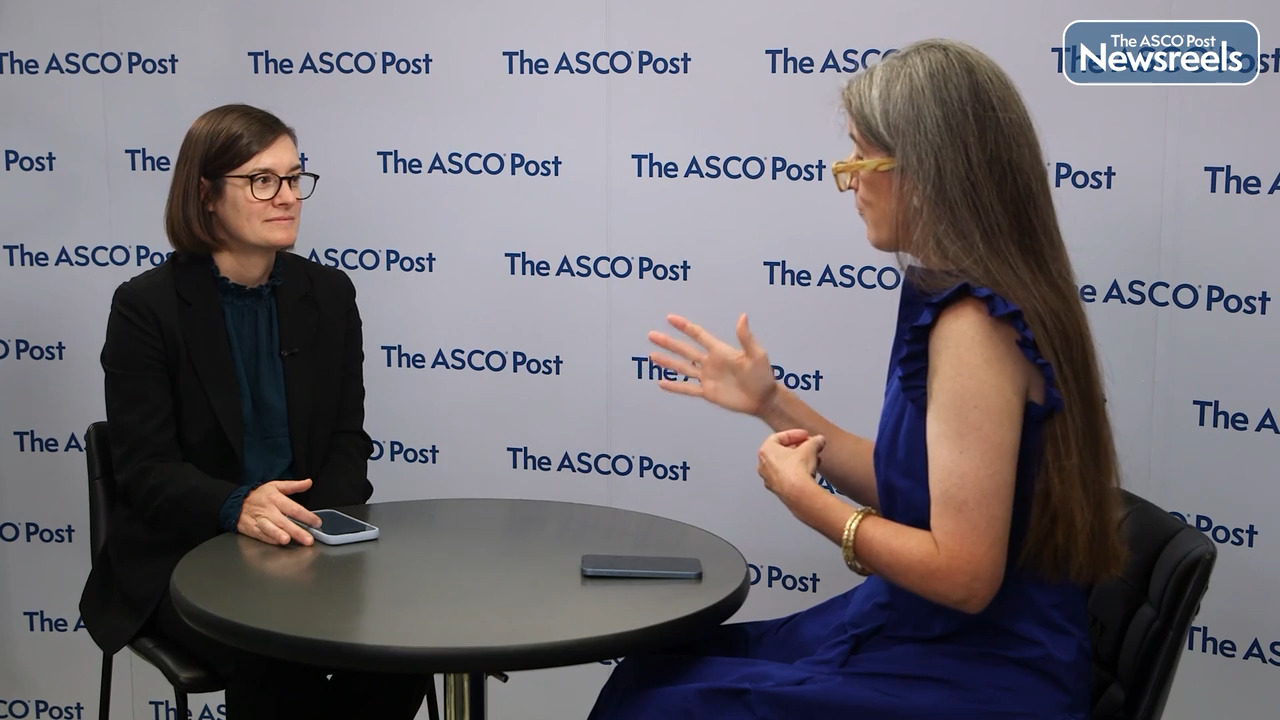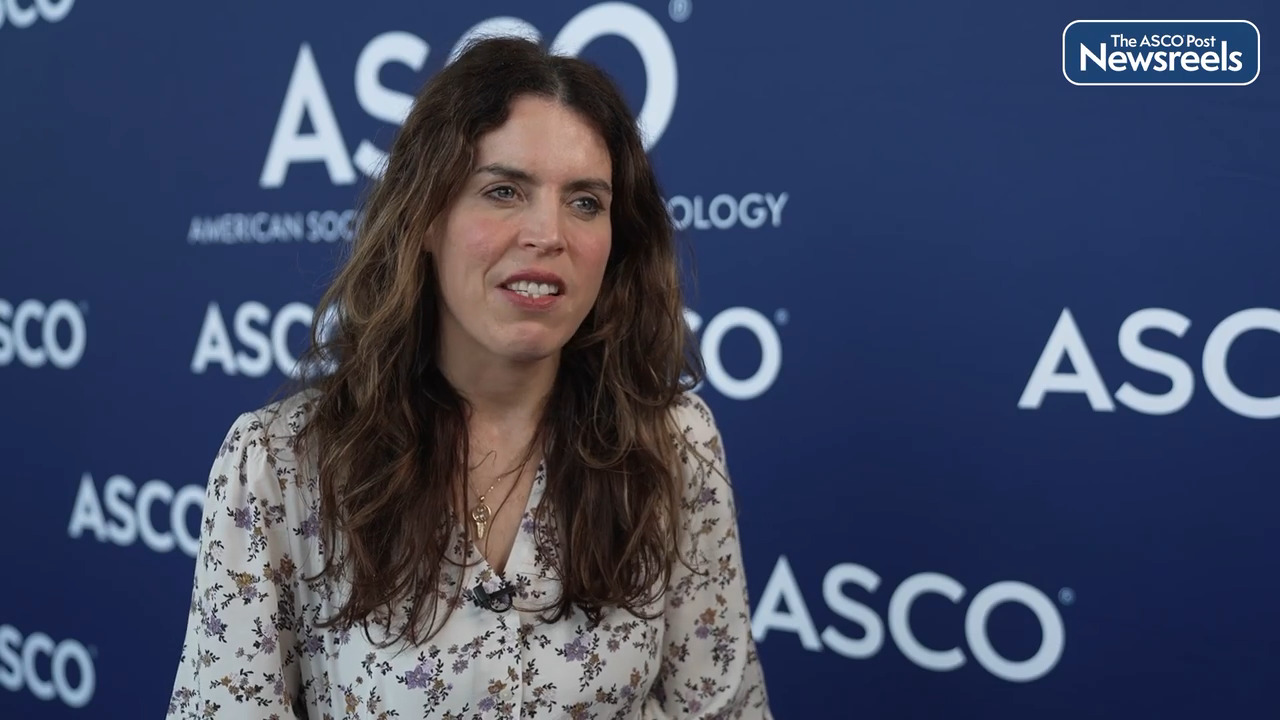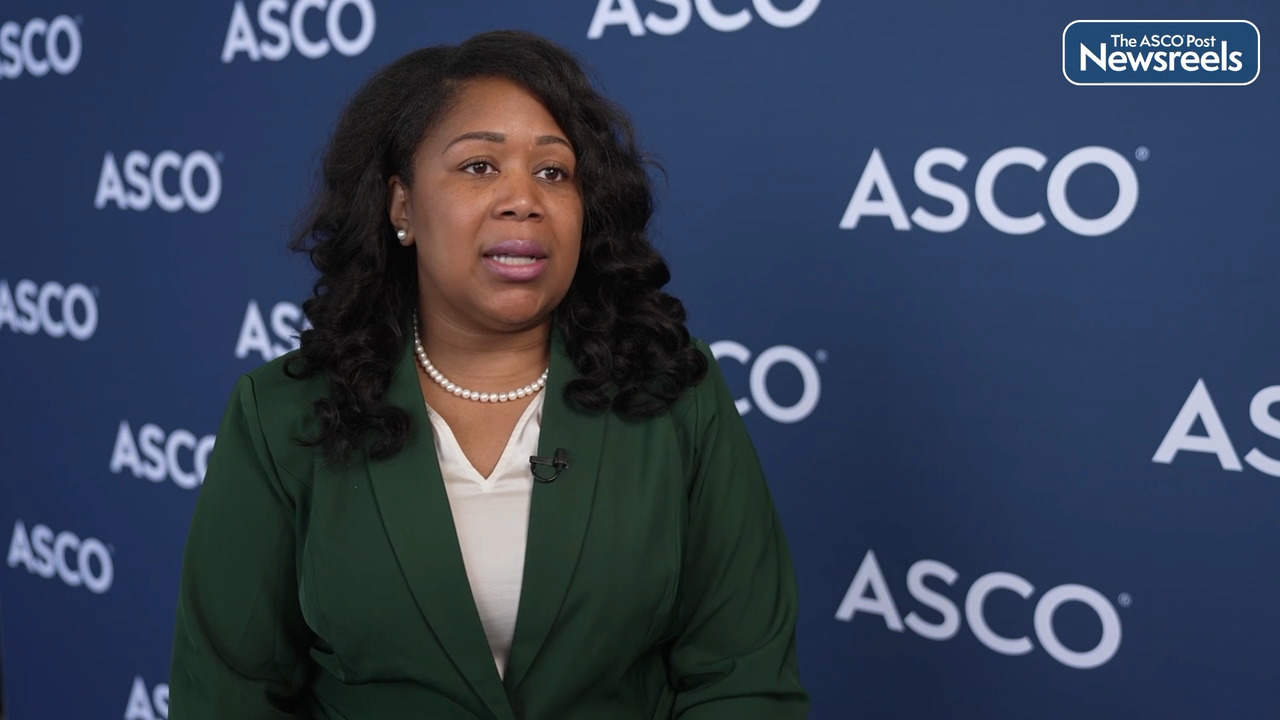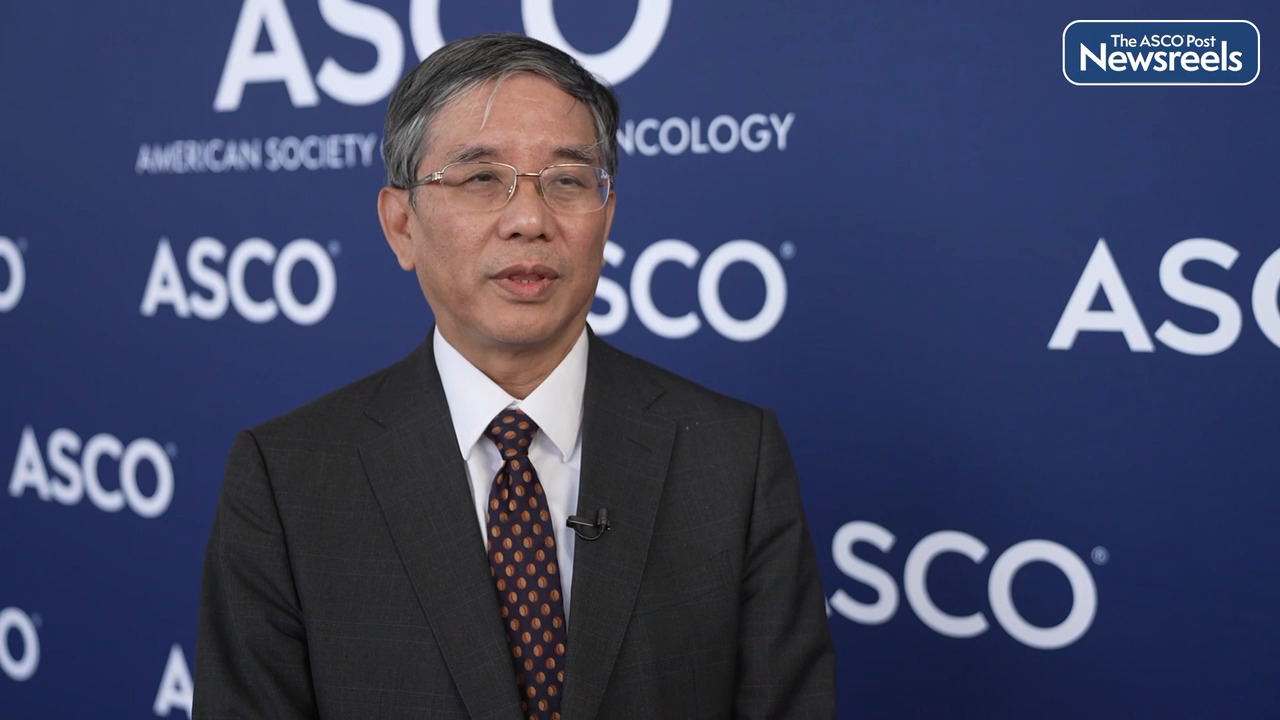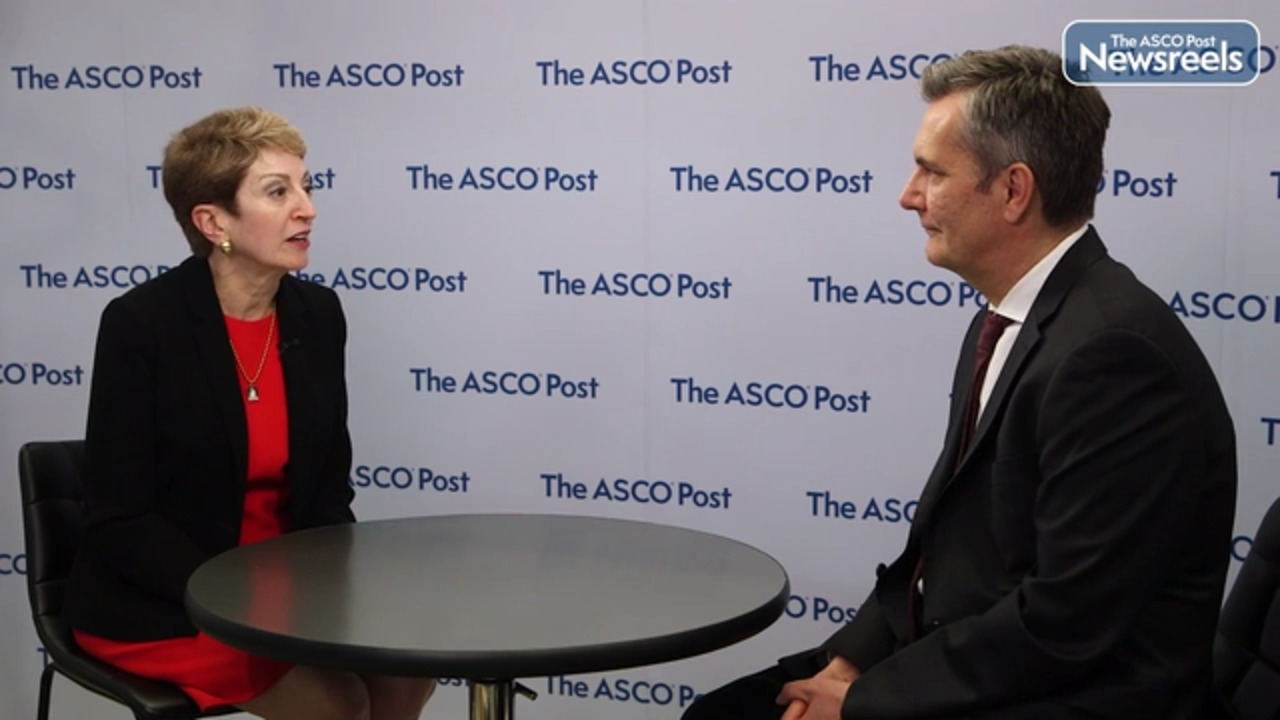Jennifer L. Crombie, MD, on DLBCL: Real-World Outcomes With Novel Therapies in Relapsed or Refractory Disease
2023 ASCO Annual Meeting
Jennifer L. Crombie, MD, of Dana-Farber Cancer Institute, discusses the historically poor outcomes for patients with relapsed or refractory diffuse large B-cell lymphoma (DLBCL). Her study examined real-world data on the use of novel therapies in this population and found that outcomes with second- and third-line regimens of polatuzumab vedotin-piiq plus bendamustine and rituximab and tafasitamab plus lenalidomide remain suboptimal, with worse outcomes particularly after chimeric antigen receptor T-cell therapy (Abstract 7552).
Transcript
Disclaimer: This video transcript has not been proofread or edited and may contain errors.
Jennifer L. Crombie, MD:
We know that the treatment landscape of diffuse large B-cell lymphoma or DLBCL has significantly evolved over the past few years since the availability of multiple new therapeutic options that are now FDA approved for this disease. The outcomes of patients in the real world setting utilizing these novel agents, however, remains less clearly described. In our study, we utilize the CODA Electronic Health records database, which consists of patient demographic and clinical information from both academic and community practice sites across the United States.
We identified over 5,700 patients with a diagnosis of DLBCL in the database. And further within this cohort, we identified 175 patients with relapsed refractory disease, who had been treated with a novel therapy. Novel therapies consisted of chimeric antigen receptor T-cell therapy, or CAR-T therapy, Tafasitamab plus Lenalidomide, Polatuzumab plus Bendamustine and Rituximab, and along Cetuximab, there were no patients in the database treated with Selinexor.
Patients were also required to have at least one post index response assessment or date of death recorded following their treatment with the novel therapy. Patients were further classified as having received two or more versus three or more lines of therapy. We next examined outcomes within each treatment group. We found that outcomes were best among the patients treated with CAR T-cell therapy with overall response rates of approximately 75% and a median overall survival of 27 in 18 months, in patients who had received two or greater versus three or later lines of therapy.
Outcomes were poorer among patients who had received other novel therapies. Those patients treated with Polatuzumab based regimens had an overall response of approximately 60% and a median overall survival of 7.5 months. And patients treated with Tafasitamab based regimens had response rates ranging from 35 to 40% depending on the line of therapy and a median overall survival of approximately six months.
Patients treated with novel therapies after CAR T-cell had a particularly poor outcomes with overall survivals of less than three months. While it's encouraging that novel therapies are now available for patients with relapse or refractory DLBCL, our data highlight the persistent poor outcomes that are seen in the relapsed refractory setting, particularly after CAR-T relapse and the urgent need for ongoing treatment options in this space. Thankfully, other drugs including CD20, CD3 bispecific antibodies, as well as other novel therapies and combinations are being studied in ongoing clinical trials.
The ASCO Post Staff
Bobbie J. Rimel, MD, of Cedars-Sinai Medical Center, and Kathleen N. Moore, MD, of the Stephenson Oklahoma Cancer Center at the University of Oklahoma, discuss phase III results from the MIRASOL trial, which showed that mirvetuximab soravtansine-gynx prolonged overall survival vs investigator’s choice chemotherapy in patients with platinum-resistant ovarian cancer with high folate receptor-alpha expression. The findings suggest a new standard of care for this disease (Abstract LBA5507).
The ASCO Post Staff
Claire Roddie, PhD, MBChB, of University College London, discusses results of the FELIX study, which showed that the second-generation chimeric antigen receptor (CAR) T-cell therapy obecabtagene autoleucel is safe for adults with relapsed or refractory B-cell acute lymphoblastic leukemia, even those with a high burden of disease. This agent yielded high rates of complete response and ongoing CAR T-cell persistence in most patients whose disease responded (Abstract 7000).
The ASCO Post Staff
LaQuisa C. Hill, MD, of Baylor College of Medicine, Houston Methodist Hospital, discusses study findings showing that CD5 chimeric antigen receptor (CAR) T cells may induce clinical responses in heavily treated patients with relapsed or refractory T-cell acute lymphoblastic leukemia. Manufacturing CD5 CAR T cells with tyrosine kinase inhibitors seemed to improve their potency and antitumor activity (Abstract 7002).
The ASCO Post Staff
James Chih-Hsin Yang, MD, PhD, of the National Taiwan University Hospital and National Taiwan University Cancer Center, discusses the latest data from the phase III KEYNOTE-789 study, which evaluated the efficacy and safety of pemetrexed plus platinum chemotherapy (carboplatin or cisplatin) with or without pembrolizumab in the treatment of adults with EGFR tyrosine kinase inhibitor–resistant, EGFR–mutated, metastatic nonsquamous non–small cell lung cancer (NSCLC) (Abstract LBA9000).
The ASCO Post Staff
Lisa M. DeAngelis, MD, and Ingo K. Mellinghoff, MD, both of Memorial Sloan Kettering Cancer Center, discuss findings from the INDIGO trial showing that the IDH1/2 inhibitor vorasidenib improves progression-free survival for patients with residual or recurrent grade 2 glioma with an IDH1/2 mutation. These data demonstrate the clinical benefit of vorasidenib in this patient population for whom chemotherapy and radiotherapy are being delayed.
